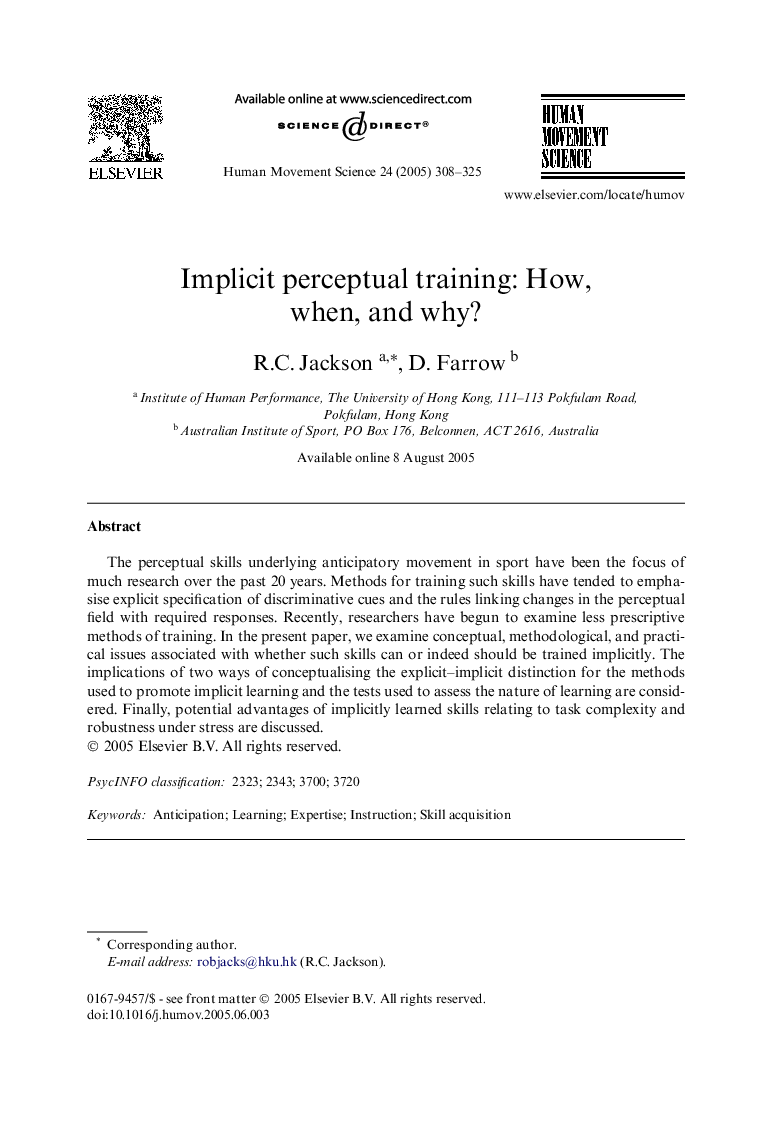| Article ID | Journal | Published Year | Pages | File Type |
|---|---|---|---|---|
| 10459326 | Human Movement Science | 2005 | 18 Pages |
Abstract
The perceptual skills underlying anticipatory movement in sport have been the focus of much research over the past 20 years. Methods for training such skills have tended to emphasise explicit specification of discriminative cues and the rules linking changes in the perceptual field with required responses. Recently, researchers have begun to examine less prescriptive methods of training. In the present paper, we examine conceptual, methodological, and practical issues associated with whether such skills can or indeed should be trained implicitly. The implications of two ways of conceptualising the explicit-implicit distinction for the methods used to promote implicit learning and the tests used to assess the nature of learning are considered. Finally, potential advantages of implicitly learned skills relating to task complexity and robustness under stress are discussed.
Related Topics
Life Sciences
Neuroscience
Cognitive Neuroscience
Authors
R.C. Jackson, D. Farrow,
